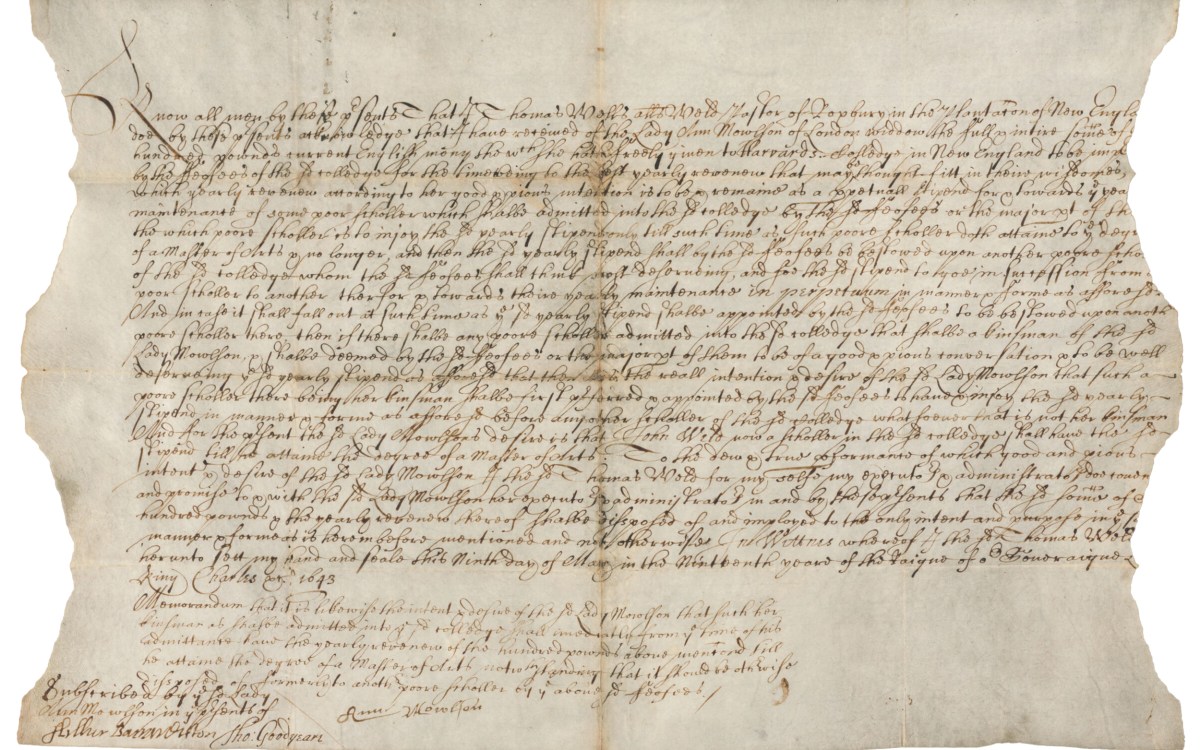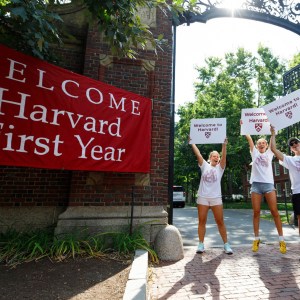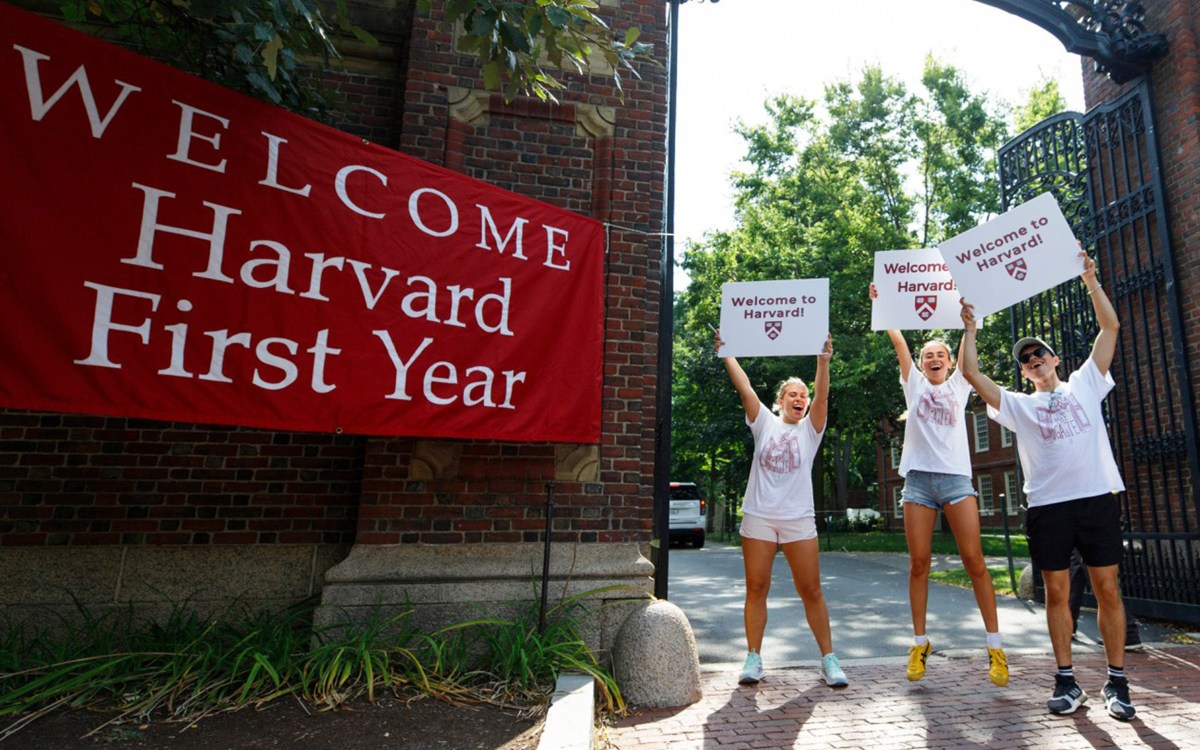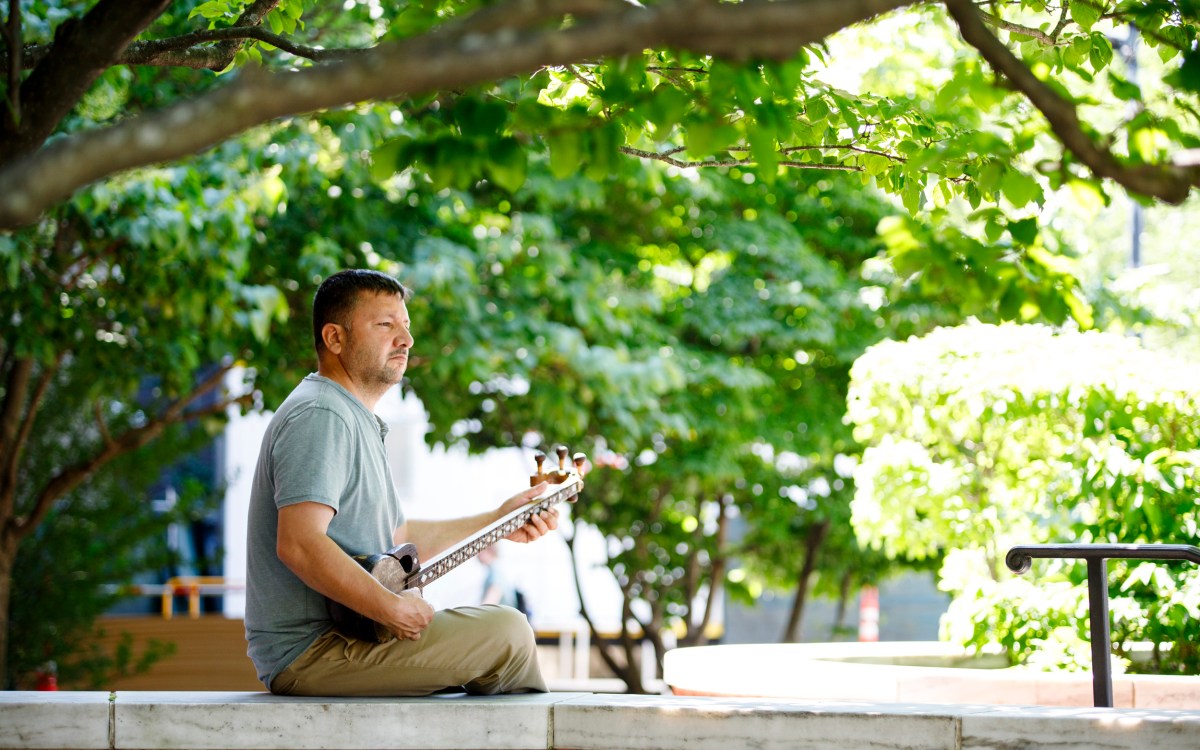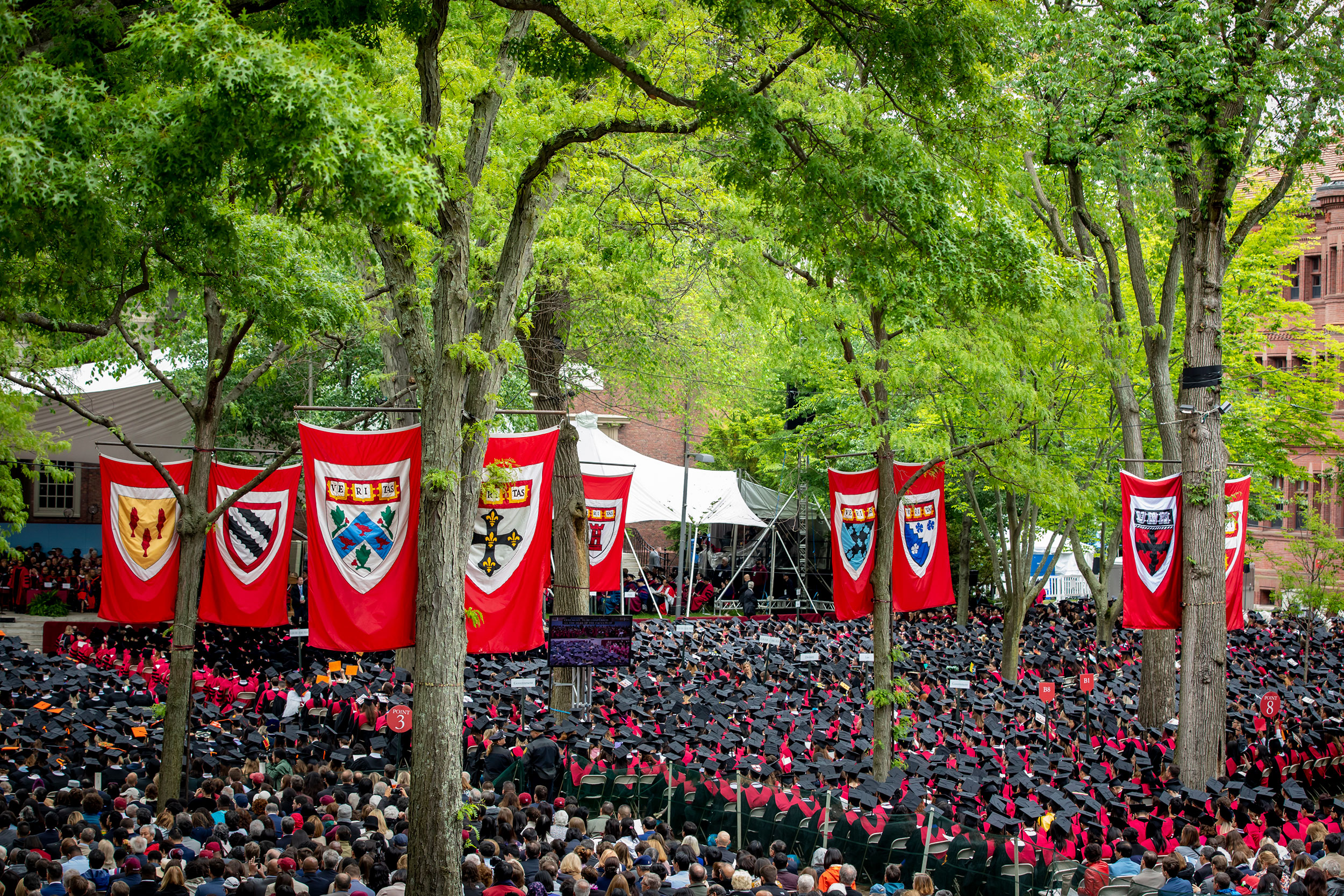
Harvard file photo
Making connections between modern, ancient — and each other
Student orators reflect on lessons from trauma and recovery; celebrating difference and what we share
As part of a long and cherished tradition, three students have been selected in a campus-wide competition to deliver speeches in English and Latin to honor the Class of 2023 at Commencement.
The orations will be delivered during Morning Exercises, which will take place at Tercentenary Theatre on May 25. Josiah Ethan Meadows will deliver the Latin Salutatory; Pallas Chou, the Senior English Address; and Harvard Kennedy School graduate Vic Hogg, the Graduate English Address.
***
“I wanted to write a reflective speech, something that speaks to everyone.”
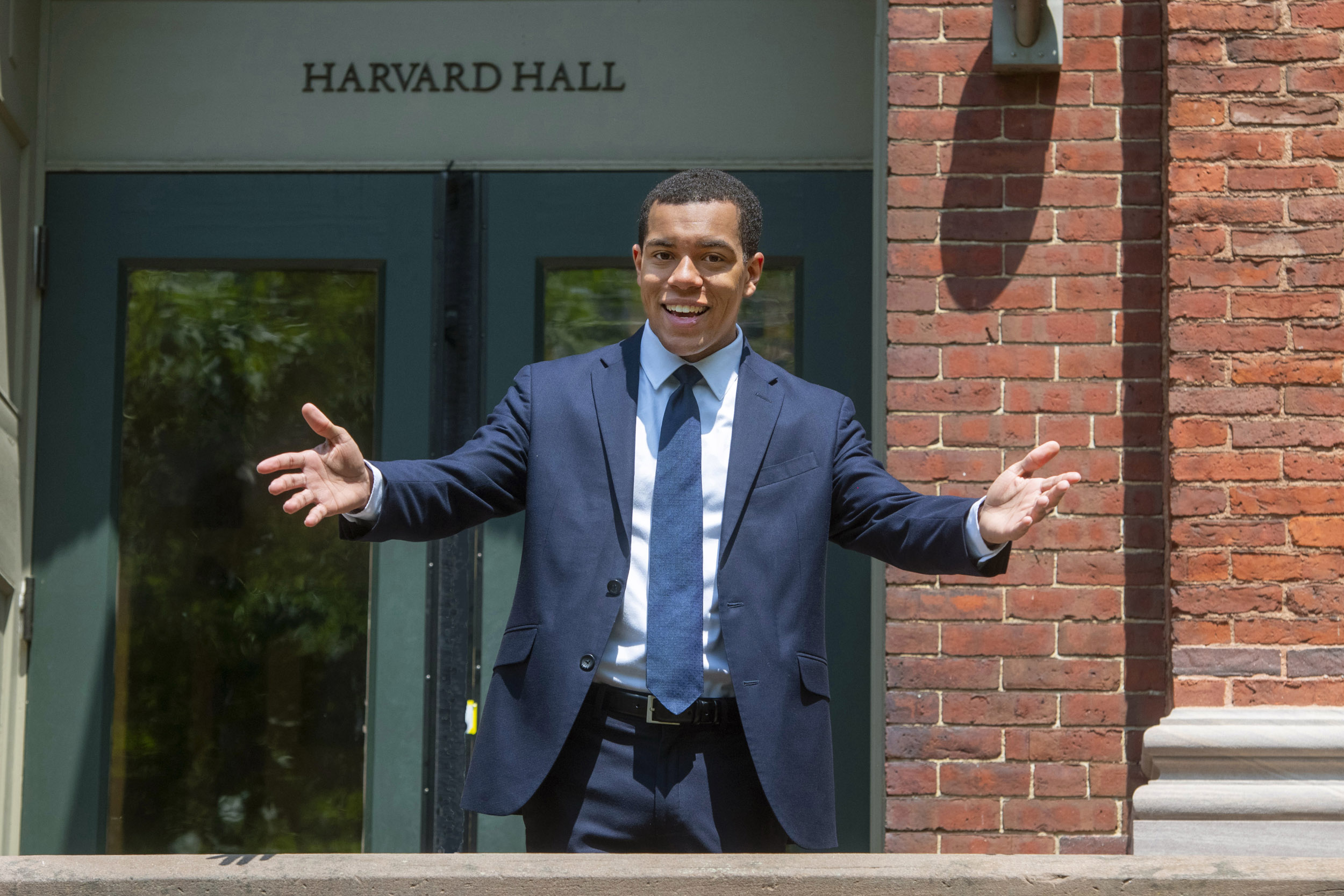
Jon Chase/Harvard Staff Photographer
Josiah Ethan Meadows
Undergraduate Latin
Josiah Ethan Meadows’ parents wanted to focus on a classical education when they decided to homeschool him and his four sisters. Meadows started learning Latin at 11, and very quickly his dad realized he couldn’t keep up with his son’s passion for the language.
He hired a professional tutor, immersed Meadows in summer Latin courses, and took him on trips to Italy from their hometown in Athens, Georgia. Meadows competed in his first Latin orations competition at age 15 in Sulmona, Italy, and won, becoming the first non-Italian to take the prize.
Over his four years at the College, Meadows has dreamed of delivering the Latin oration at Commencement. His oration, which will marry the two experiences, takes as its theme the value of a Harvard education.
“I wanted to write a reflective speech, something that speaks to everyone,” Meadows said. “I feel like people will be able to reflect on their time here and really consider what means the most to them about their Harvard experience.”
Meadows noted that in recent years, the Latin speeches have become more modern and comic in tone. But he also spent a lot of time in the Harvard archives, looking at speeches from the 17th, 18th, and 19th centuries. Most of those tended to be more formal and ornate. Meadows hopes that in imitating that style — while also embracing contemporary approaches — he can honor a tradition that has been going on for more than 300 years.
“It was really fascinating to see how the speech has evolved over time,” he said. “I wanted to find a good balance between something serious and something humorous.”
The value and pleasures of eclecticism is something Meadows will take away from his time at the College. During his four years, he studied government with a secondary in economics, yet still found time to take many classes in the classics. Being surrounded by smart, funny people from around the world was a gift, and he’s hopeful these relationships will continue for decades to come.
“I’ll miss the days when I’m walking out of an exam or walking out of a class and discussing what we learned with my roommate,” he said. “Hopefully, I’ll be a lifelong learner, but there’s nothing like learning in this environment.”
***
“I just want people to be able to see science in a different lens and find the beauty of it in everyday life.”
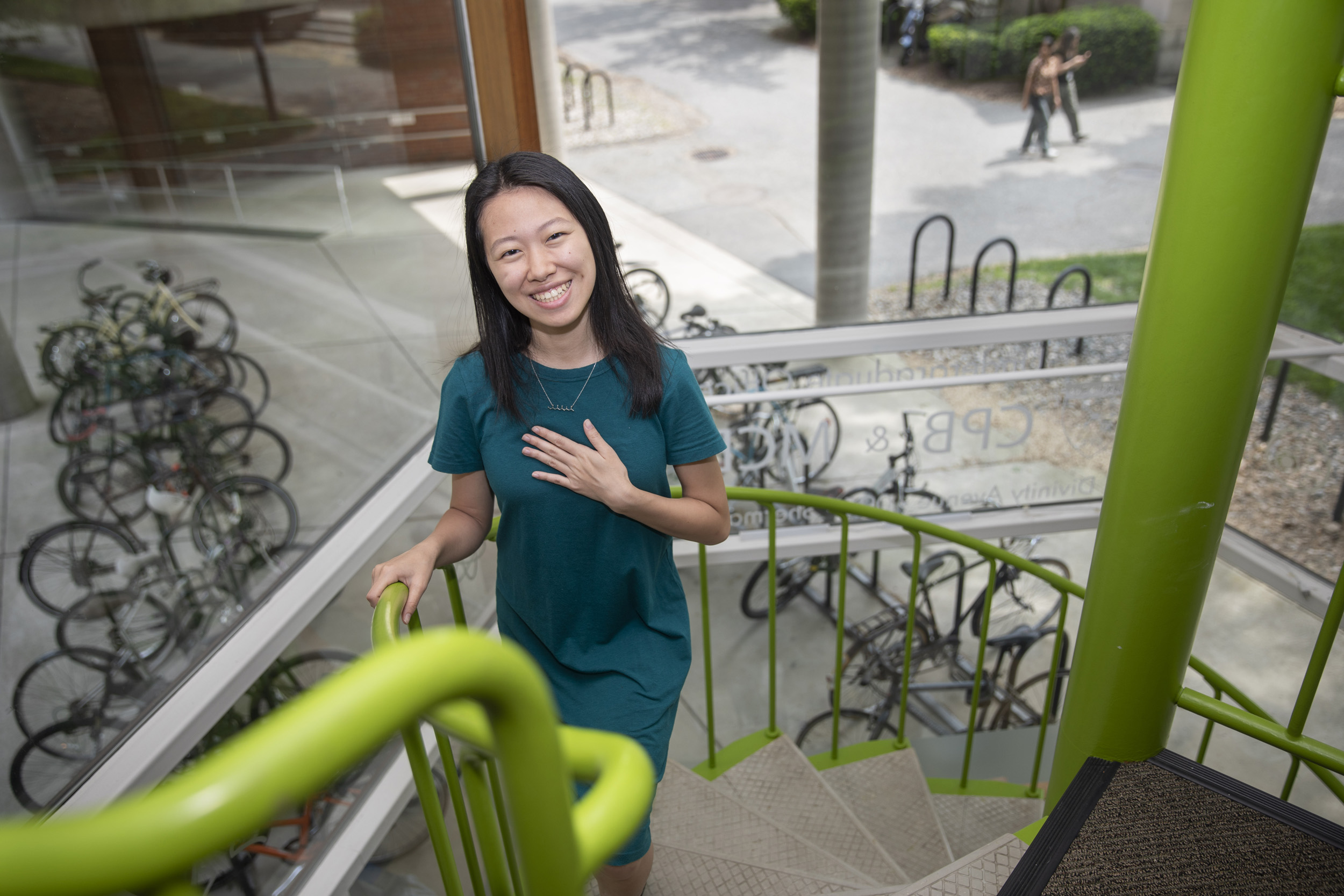
Kris Snibbe/Harvard Staff Photographer
Pallas Chou
Undergraduate English
Pallas Chou understands that for some, science can be boring. But in pursuing a concentration in chemical and physical biology, she was struck time and time again by how much science impacts our lives, and how beautiful it can be. She hopes to capture those insights in her oration.
“My speech revolves around the idea of enzymes and how they parallel the Harvard experience,” said Chou, who works with the tiny biological catalysts in a University lab. “I just want people to be able to see science in a different lens and find the beauty of it in everyday life.”
As a high schooler, the California native began working with enzymes at Lawrence Berkeley National Lab, where she genetically engineered fungi to make enzymes that could help produce biofuels.
She was struck by how these “small but mighty” macromolecules, which act as catalysts to trigger all kinds of biochemical reactions, affect nearly every aspect of life and are ubiquitous in the human body. They are incredibly diverse, she said, yet they work in harmony with each other. In many ways, enzymes can help us reflect on our own interconnectedness.
“At Harvard, we like to accomplish things,” she said. “I want people to have the idea that they’re individually incredible and can accomplish great things … but at the same time, they are fundamentally shaped by the people around them.”
Chou credits her professors and classmates with helping her get to graduation day. But she also believes that her family, especially her younger brother, informed her academic career and trajectory in big ways. The high schooler’s passion for robotics prompted Chou to take an engineering course. His explanation of various concepts gave her a new perspective that allowed her to integrate her passion for science with engineering.
After graduation, she’ll return to sunny California to pursue a Ph.D. in chemical and systems biology at Stanford University. But even as she prepares to leave Cambridge — and its unpredictable weather — she knows she won’t really be leaving everything behind.
“I’m really grateful for the relationships I was able to build,” she said. “I’ve grown so much and have had wonderful people that have been in my life. And I really just hope to continue to be connected with them as I leave Harvard.”
***
“Since I was given the opportunity to speak, other Native people and other nonbinary and trans people have told me how much this means to them.”
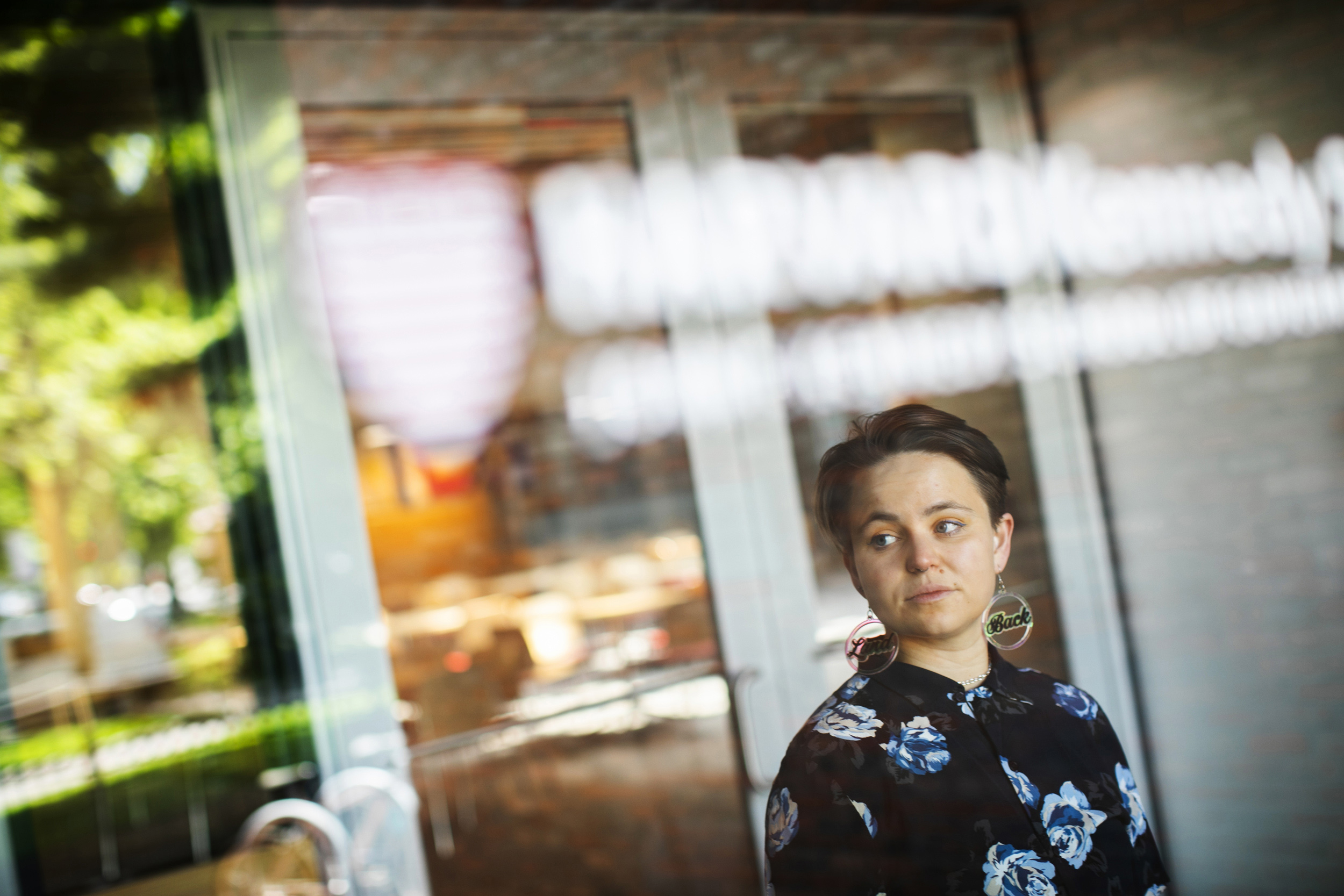
Stephanie Mitchell/Harvard Staff Photographer
Vic Hogg
Graduate English
Vic Hogg has long cared about Indigenous issues as a citizen of the Nottawaseppi Huron Band of the Potawatomi from rural Michigan. After earning a bachelor’s in psychology from Yale and working at a nonprofit, Hogg came to the Harvard Kennedy School as a Native American and Public Service Fellow to pursue a master’s in public policy with a focus on tribal governance and sovereignty.
But Hogg’s life took a shattering turn when they became the victim of a violent attack midway through their program. The details surrounding this experience — and what they learned in the recovery period that followed — will be the focus of their address.
“I had never thought of myself as a writer,” Hogg said. But when an email arrived announcing the oration competition, Hogg decided there could be value in sharing their story with the community as a way to try and process what happened. “It was really healing for me to write it.”
Hogg hopes the talk will also resonate with other graduates who have felt isolated during their time on campus. Being an Indigenous and nonbinary person, Hogg often felt alone in their struggle to belong. They note this is a particularly turbulent time for trans and nonbinary people nationwide, and that sharing their experience is not only timely, but useful.
“Since I was given the opportunity to speak, other Native people and other nonbinary and trans people have told me how much this means to them,” Hogg said. “It means something to have a nonbinary person on the Commencement stage.”
For Hogg, what comes after graduation is still a mystery, but the moment will mark the beginning of a journey in fighting for equal rights for marginalized communities. “I’m capable of doing the things that I want to do in the future,” Hogg said. “I think that’s a really powerful thing. I’m walking away with what Harvard gave me — and my recovery gave me.”
